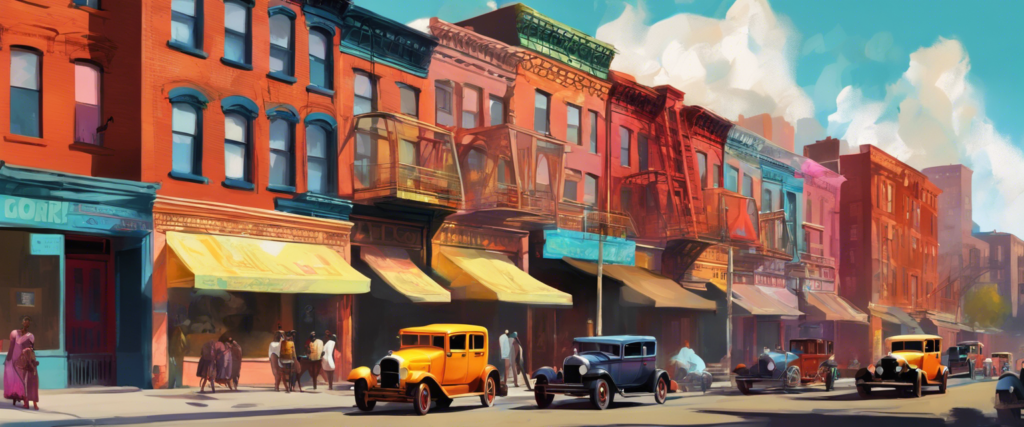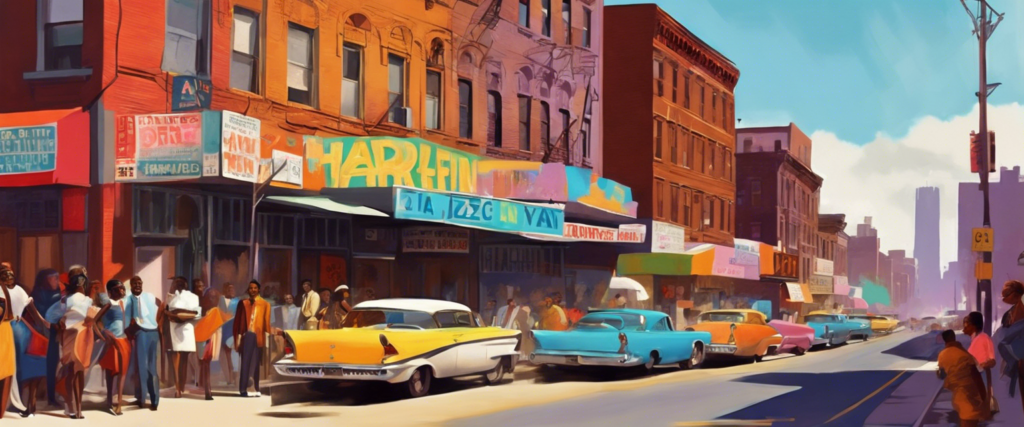I am the flawed protagonist in my own story.
Perhaps I would like to think I am on a redemption arc. That common storytelling trope where a flawed or morally questionable character undergoes a transformation, ultimately becoming a better person. I don’t mean this as an admission of any sort of heinous crime, no, I’m recovering from a mild case of leftism.
But less about me, I want to talk about Thomas Sowell, and his redemption arc. A story that is far more interesting than my own.
Born Under a Bad Market
To say that Thomas Sowell was born into a tumultuous time in American history is to do injustice to the period around the 1929 Stock market crash. It was called the Great Depression for a very good reason. It began with the Wall Street crash in October 1929 and spread worldwide. Kicking off a decade of high unemployment, poverty, low profits, deflation, plunging farm incomes and a general loss of confidence in the economic future. Thomas was born in June of 1930 in Gastonia, North Carolina, into a household with no running water or electricity. His father died before he was born, and a few years later, he lost his mother during childbirth.
Gastonia was a segregated community, and much like the rest of the Southern states it was subject to the Jim Crow laws. These laws were passed by the ‘Redeemers‘ who sought to reestablish white supremacy. In the process, disenfranchising and erasing the political and economic gains made by African Americans during the Reconstruction Era; something that had given rise to a burgeoning African American middle class and biracial coalitions.
In reaction to this segregation and disenfranchisement, and combined with the economic hardships, tens of thousands of African Americans left the state. Between 1910 to 1940 almost 1.5 million African Americans left the South, mostly heading to industrial cities, Washington D.C., Baltimore, Philadelphia and New York. It was New York, and more specifically Harlem, that Thomas and his Aunt (now his guardian) found themselves in 1939.
In the early portion of the 20th century Harlem was the destination for a lot of economic migrants from the Southern states. Not only economic migrants, but also an educated middle class who made Harlem a center of culture. In amongst all this grew the Harlem Renaissance. A melting pot of heritages and backgrounds that spurred new identities for the black communities and enabled the mainstream recognition of Harlem Culture.
The Harlem Renaissance gave rise to new movements in literature, music, religion, art, theatre and poetry. There was no singular identity that rose from this, rather it was represented by a wide range of cultural identities and styles. Ultimately aiming to challenge racist stereotypes and promote progressive and socialist politics. It was an important time, because it brought black identity into the discourse of American cultural history, giving a foundation that built towards the Civil Rights movements of the 50’s and 60’s.

Thinking Beyond Stage One
Sowell was bright, he qualified for the prestigious academic high school Stuyvesant in New York City, and was the first in his family to study beyond the sixth grade. He was forced to drop out at age 17 because of financial difficulties and troubles at home. He worked various jobs and was drafted into the armed services during the Korean War in 1951, before being honorably discharged in 1952.
After this, he completed his high school education, took a civil service job in Washington D.C. and attended night school at Howard University before gaining admission to Harvard University. In 1958 he graduated magna cum laude with a Bachelor of Arts degree in economics. At this point, and as late as 1960 when he received his Masters from Columbia, Sowell considered himself a Marxist. Finding himself attracted to the ideas of Karl Marx because they “seemed to explain so much, and they explained it in a way to which my grim experience made me very receptive”. In fact, he credits his academic achievements at Harvard (his honors thesis was on Marx and Engels) to his intimate knowledge of Marxism.
It wasn’t until he was at Columbia University, studying for his Doctor of Philosophy in Economics that he began to change his mind. He began to reevaluate his Marxist roots and understand the repercussions of his economic beliefs. One of the most defining experiences occurred whilst discussing one particular aspect of economic policy and the second order effects. Sowell outlines that his professor asked him “and then what will happen?”.
This caught Sowell off guard. Upon being pressed further Sowell realised “the economic reverberations of the policy I advocated were likely to be pretty disastrous.” From this experience he learned to begin questioning the consequences of the policies he favored under a Marxist ideology.
“subjecting beliefs to the test of hard facts is especially important when it comes to economic beliefs because economic realities are inescapable limitations on millions of people’s lives, so that policies based on fallacies can be devastating in their impacts“
His beliefs were further eroded through his studies of Hayek’s 1945 paper “The Use of Knowledge in Society”. Sowell admitted this paper contributed more to to the ideas in his book Knowledge and Decisions than any other source.
The real turning point came when he joined the US Department for Labor in the June of 1961. Up until now, still onboard with Marxist ideology, he had been a supporter of socialist programs such as minimum wage laws. But as he spent time with the economic data from the sugar industries in Puerto Rico he found the data was in direct contradiction with the aim of helping lower paid works earn a decent living. In fact, employment was going down as the minimum wages rate was going up.
“minimum wage laws price inexperienced and unskilled workers out of jobs… in other words, government was not the solution but the cause of the problem”
Not only did this experience teach Sowell that the aims of the government do not always align with the needs of the people, but he began to understand the inability for Marxist ideologies to solve social problems. His philosophical departure from Marxism was not caused by these experiences alone, it was supplemented by his study of the history of economics. As his knowledge increased, his support of leftist theories decreased.
“Those who cry out that the government should ‘do something’ never even ask for data on what has actually happened when the government did something, compared to what actually happened when the government did nothing.”

Denouncing the Trend
Until the spring of 1972 Sowell was a registered Democrat, after which he left the party and resolved not to associate with any political party again. Whilst often described as a ‘Black conservative’ he is more likely to find affinity within the Libertarian movement. Prominent liberals have been quick to criticise his positions on race, economics and society. Possibly because he set out with the intention of challenging conventional ‘Black Liberal‘ thinking.
“When you want to help people, you tell them the truth. When you want to help yourself, you tell them what they want to hear.”
He has been savage in his criticisms of the progressives and intellectuals who seek social justice. Fifty years ago he was already denouncing the trends that now afflict fashionable movements like Black Lives Matter. Pursuing symbolic results rather than real ones. With the left coast liberal elites choosing white guilt over actual advancement for minorities and the disenfranchised; seeking legislation for special treatments over equal chances.
“Mistakes can be corrected by those who pay attention to facts but dogmatism will not be corrected by those who are wedded to a vision.”
Sowell was prescient in his belief that the policies being pushed would do more harm than good. Something we can see coming to the front with the clearly exposed failure of the DEI-educational complex at the heart of the American colleges in recent months (Jan 2024). The irony is not lost on me that Harvard University, having taught Sowell, is now at the forefront of scandals that expose the divisive Oppressor vs Oppressed identity politics. The sociologist Charles Derber asserts that the American left is “largely an identity-politics party”.
One of Sowell’s targets is the current trend for equity, a fetish disguised as equality for all, but at its heart is barely concealed, and sometimes blatant, racism. Indeed, if you listen to current day Black intellectuals like Ibram X. Kendi, who declares that “the only remedy to past discrimination is present discrimination”, you see the championing of a two tier system that Sowell is sadly only too familiar with.
Worse still, if you oppose this new racism, you yourself are declared a racist.
“If you have always believed that everyone should play by the same rules and be judged by the same standards, that would have gotten you labeled a radical 60 years ago, a liberal 30 years ago and a racist today.”

Conclusion
Sowell is a man who grew up in abject poverty. With cultural and economic hardships, a time of momentous cultural shifts in Black America. Yet he still manage to distinguish himself throughout his life. His exposure to economic realities and hard data shifted his thinking on how best to serve his fellow man. Through economic opportunity, neither handouts nor special privelidge. Just equality and opportunity.
“When people get used to preferential treatment, equal treatment seems like discrimination.”
He takes particular issue with the notion that the government is a helper or savior of minorities. Arguing that historical records and economic data shows quite the opposite. He’s critical of affirmative action and race-based quotas. These policies hinder and hurt almost all demographics, failing even to help the groups they target for support. The data shows for certain that it has had negative consequences for minority students.
The new moral order that supports a far reaching program of state and institutionally sanctioned racism was something he saw as a risk early on. A revival of the old, separate and unequal state of the early nineteenth century.
A more just America will come into being not through self-serving elite word games or mandatory moral improvement campaigns funded by billionaires and backed by the coercive power of social media and the state but by keeping our eyes on what matters—learning, achievement, physical safety, family cohesion, and jobs.
With a redemption arc of this magnitude, there is hope for the Left yet. Perhaps that’s just a charitable view.
Further Reading:
Thomas Sowell and his Marxist Roots: An examination of one man’s intellectual development – T Martin Junior
The Use of Knowledge in Society – F.A. Hayek
Thomas Sowell: Speech From the 1980 Fairmont Conference (video)



Enjoyed that one.